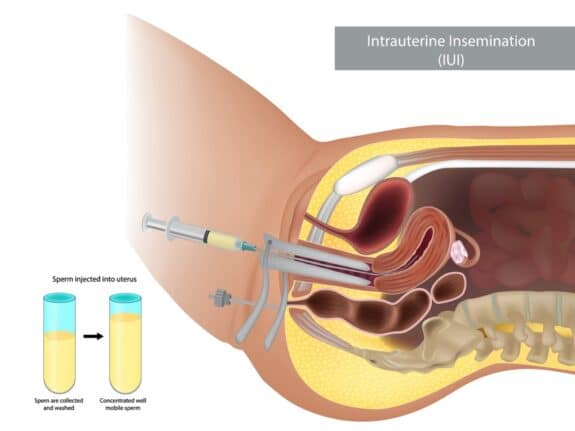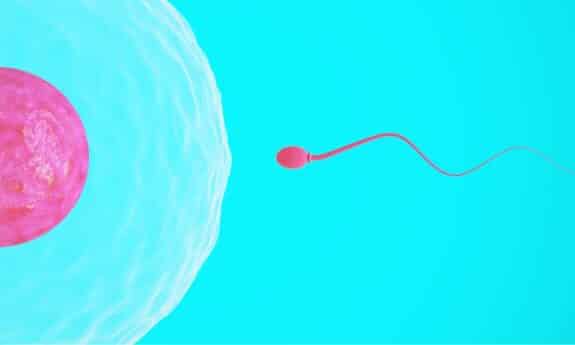Since announcing her pregnancy via sperm donor, Lala Kent’s fertility treatment Intrauterine insemination (IUI) has been in the news. Also known as artificial insemination, IUI stands as a promising solution for individuals or couples struggling with infertility. This procedure significantly enhances the chances of conception by strategically placing specially prepared sperm directly into the uterus, the vital organ where fetal development occurs. The process aims to facilitate the union of sperm and egg in the fallopian tube, ultimately leading to pregnancy.
Why IUI is Conducted:
IUI serves as a viable option for various fertility-related challenges, including:
- Donor Sperm: For individuals relying on donor sperm to conceive, IUI offers a straightforward approach, utilizing certified donor sperm obtained from reputable laboratories.
- Unexplained Infertility: As an initial treatment for couples grappling with undetermined fertility issues, IUI coupled with fertility medications can often provide the necessary boost.
- Endometriosis-related Infertility: Addressing fertility complications linked to endometriosis through a combination of medication and IUI to optimize egg quality.
- Mild Male Factor Infertility: Overcoming challenges associated with semen quality or quantity through the meticulous preparation of sperm, separating high-quality sperm from lower-quality ones to enhance fertilization prospects.
- Cervical Factor Infertility: Overcoming obstacles posed by cervical issues hindering sperm movement, such as thick cervical mucus or scarring, by bypassing the cervix and directly placing sperm into the uterus.
- Ovulatory Factor Infertility: Addressing ovulation-related fertility challenges, including irregular ovulation or diminished egg production, by coordinating IUI with ovulation-inducing medications.
- Semen Allergy: Offering a solution for individuals experiencing allergic reactions to semen proteins, enabling pregnancy while preventing discomfort through the strategic removal of allergens before sperm insertion.
Risks Associated with IUI:
While generally considered safe, IUI carries minimal risks, including a slight chance of infection post-procedure, spotting due to the insertion of a catheter, and a slightly increased likelihood of multiple pregnancies when combined with fertility medications.
Preparation for IUI:
Preparation involves meticulously timing the procedure with ovulation, utilizing at-home ovulation predictor kits or medical interventions like transvaginal ultrasounds to pinpoint the optimal time for IUI. Additionally, the semen sample, whether from a partner or a donor, undergoes thorough preparation to ensure the highest concentration of healthy sperm.
During and After the Procedure:
The IUI procedure, typically performed in a clinical setting, involves a straightforward process of inserting prepared sperm into the uterus via a catheter. Post-procedure, patients can resume their daily activities, with potential light spotting lasting a day or two. Patients are advised to wait two weeks before taking a home pregnancy test to allow sufficient time for accurate results. Follow-up appointments may involve blood tests for pregnancy hormone confirmation.
What Is The Success Rate Of IUI?
The success rate of intrauterine insemination (IUI) can vary depending on several factors, including the age of the individual or couple, the underlying cause of infertility, the quality of the sperm and eggs, and whether fertility medications are used in conjunction with the procedure. Generally, success rates for IUI are modest compared to more advanced fertility treatments like in vitro fertilization (IVF).
On average, the success rate of IUI per cycle is approximately 10% to 20%, meaning that for every cycle of IUI, there is a 10% to 20% chance of achieving pregnancy. However, this percentage can vary widely based on individual circumstances.
Factors that may impact the success rate of IUI include:
- Age: Younger individuals typically have higher success rates with IUI compared to older individuals, as age can affect egg quality and quantity.
- Ovulation: Success rates tend to be higher when IUI is performed during a cycle where ovulation is carefully monitored and timed accurately.
- Fertility medications: The use of fertility medications to stimulate ovulation can increase the chances of success by improving the number and quality of eggs available for fertilization.
- Sperm quality: Higher sperm count, motility (movement), and morphology (shape) can positively influence the success of IUI.
- Underlying cause of infertility: Certain infertility factors, such as tubal blockages or severe male factor infertility, may decrease the likelihood of success with IUI.
It’s important to note that success rates are cumulative, meaning that the chances of achieving pregnancy increase with each additional cycle of IUI. Some individuals or couples may require multiple cycles of IUI before achieving a successful pregnancy.
Does Insurance Cover Intrauterine Insemination?
Whether insurance covers intrauterine insemination (IUI) depends on various factors, including the type of insurance plan and the specific provisions outlined in the policy.
In some cases, health insurance plans may cover part or all of the costs associated with IUI, particularly if the procedure is deemed medically necessary to address infertility issues diagnosed by a healthcare provider. However, coverage may vary significantly between insurance providers and policies.
It’s essential for individuals or couples considering IUI to thoroughly review their insurance policy documents or consult with their insurance provider to understand the extent of coverage for fertility treatments, including IUI. Additionally, discussing coverage options with a healthcare provider or fertility specialist can provide valuable insights and assistance in navigating insurance-related matters.
IUI represents a valuable tool in the journey toward parenthood for individuals or couples facing infertility challenges. Understanding the procedure, its purposes, and associated risks can empower individuals to make informed decisions about their fertility treatment options. Consulting with healthcare providers can provide personalized guidance and support tailored to individual needs, ensuring the best possible chance of achieving a successful pregnancy.
More Pregnancy Information:
- Lala Kent Embraces Single Parenthood on Her Journey to Baby No. 2
- How Stress Affects Your Baby’s Brain Development During Pregnancy
- Study Looks At Impact of Smoking During Pregnancy on Baby’s Brain Development
- New Research Looks At How Antidepressants During Pregnancy Impact Child’s Brain Development








